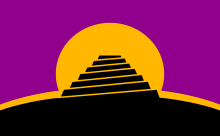Conlang/Appendix/Translation texts
These are texts you may wish to translate into your conlang.
Article One of the Universal Declaration of Human Rights
[edit | edit source]- A popular translation text on Omniglot and other language websites, this is short and explores vocabulary which may be challenging to translate.
All human beings are born free and equal in dignity and rights. They are endowed with reason and conscience and should act towards one another in a spirit of brotherhood.
Babel Text
[edit | edit source]- The story of the Tower of Babel, Genesis 11:1–9, is a common choice for translation. Jeffrey Henning recommended it as a standard comparison on the popular langmaker website, citing its language theme, repeated patterns, numerous existing translations, and less rigid form than the widely-translated Paternoster. This is (substantially) the King James Version; of course one could work from other English translations, or from the Hebrew (which turns out to have some fascinating challenges in it).

1 And the whole earth was of one language, and of one speech.
2 And it came to pass, as they journeyed from the east, that they found a plain in the land of Shinar; and they dwelt there.
3 And they said one to another, Go to, let us make brick, and burn them thoroughly. And they had brick for stone, and slime had they for morter.
4 And they said, Go to, let us build us a city and a tower, whose top may reach unto heaven; and let us make us a name, lest we be scattered abroad upon the face of the whole earth.
5 And the Lord came down to see the city and the tower, which the children of men builded.
6 And the Lord said, Behold, the people is one, and they have all one language; and this they begin to do: and now nothing will be restrained from them, which they have imagined to do.
7 Go to, let us go down, and there confound their language, that they may not understand one another's speech.
8 So the Lord scattered them abroad from thence upon the face of all the earth: and they left off to build the city.
9 Therefore is the name of it called Babel; because the Lord did there confound the language of all the earth: and from thence did the Lord scatter them abroad upon the face of all the earth.
The North Wind and the Sun
[edit | edit source]- This is one of Aesop's Fables. Suggested for parallel translation as a short text of much freer form than the Paternoster. The version below is an 1887 English translation by George Fyler Townsend.
The North Wind and the Sun disputed as to which was the most powerful, and agreed that he should be declared the victor who could first strip a wayfaring man of his clothes. The North Wind first tried his power and blew with all his might, but the keener his blasts, the closer the Traveler wrapped his cloak around him, until at last, resigning all hope of victory, the Wind called upon the Sun to see what he could do. The Sun suddenly shone out with all his warmth. The Traveler no sooner felt his genial rays than he took off one garment after another, and at last, fairly overcome with heat, undressed and bathed in a stream that lay in his path.
- Persuasion is better than force.
Juliet's Soliloquoy
[edit | edit source]This is Juliet's speech to Romeo in Shakespeare's Romeo and Juliet, Act II Scene 2.
O Romeo, Romeo, wherefore art thou Romeo?
Deny thy father and refuse thy name.
Or if thou wilt not, be but sworn my love
And I’ll no longer be a Capulet.
‘Tis but thy name that is my enemy:
Thou art thyself, though not a Montague.
What’s Montague? It is nor hand nor foot
Nor arm nor face nor any other part
Belonging to a man. O be some other name.
What’s in a name? That which we call a rose
By any other name would smell as sweet;
So Romeo would, were he not Romeo call’d,
Retain that dear perfection which he owes
Without that title. Romeo, doff thy name,
And for that name, which is no part of thee,
Take all myself.
Jabberwocky
[edit | edit source]- This poem by Lewis Carroll, from Through the Looking-Glass, is a popular translation subject. It makes playful use of language, with a relatively high density of invented words (especially in the first/last verse) with interesting phonaesthetics.

'Twas brillig, and the slithy toves
- Did gyre and gimble in the wabe;
All mimsy were the borogoves,
- And the mome raths outgrabe.
"Beware the Jabberwock, my son!
- The jaws that bite, the claws that catch!
Beware the Jubjub bird, and shun
- The frumious Bandersnatch!"
He took his vorpal sword in hand:
- Long time the manxome foe he sought—
So rested he by the Tumtum tree,
- And stood awhile in thought.
And as in uffish thought he stood,
- The Jabberwock, with eyes of flame,
Came whiffling through the tulgey wood,
- And burbled as it came!
One, two! One, two! And through and through
- The vorpal blade went snicker-snack!
He left it dead, and with its head
- He went galumphing back.
"And hast thou slain the Jabberwock?
- Come to my arms, my beamish boy!
O frabjous day! Callooh! Callay!"
- He chortled in his joy.
'Twas brillig, and the slithy toves
- Did gyre and gimble in the wabe;
All mimsy were the borogoves,
- And the mome raths outgrabe.
